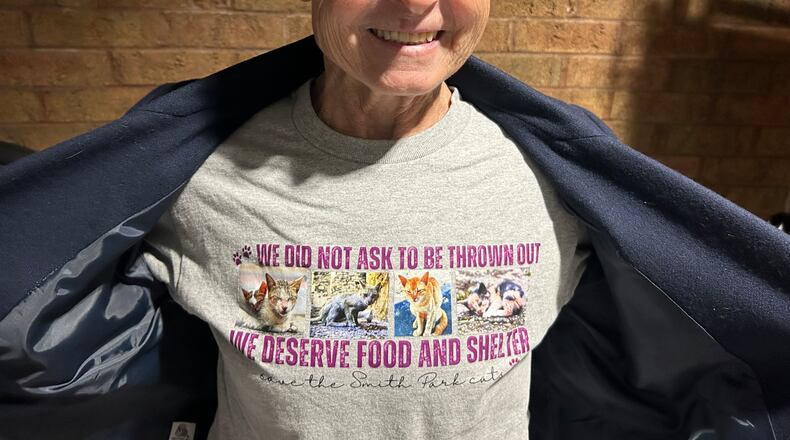They said those actions broke laws that protect cats, and instead of reducing the population, will move the feral cats closer to human habitations and malnourished cats will have a greater risk of developing parasitic infections.
After several animal advocates addressed city council with their concerns, Vice Mayor Steve West said the cat population in the city is a “massive issue.”
He called dumping cats, or any animal, “one of the worst things you could do.”
West said the city needs to look at possible solutions.
“I don’t know the answer,” he told about 30 animal advocates who sat through nearly two hours of public hearings before they were allowed to express their concerns during citizen comments.
Mayor Elizabeth Slamka said the cat issue will be discussed further at the next council meeting on April 15.
Meg Melampy, founder of Joseph’s Legacy, an animal rescue organization, said according to state law, all cats, whether pets or homeless, are considered companion animals under the law.
That means, she said, that harming, neglecting or depriving a cat of necessary sustenance is a felony in Ohio.
Melampy said removing food and shelter from these Smith Park cats, who have no means of providing for themselves, “directly contradicts” this law.
She said the feeding bans do “more harm than good” when it comes to trying to control feral cat populations.
The issue of the stray cat population in Middletown was brought before council seven years ago, before the city had an animal control officer, according to Melampy. The matter was tabled, she said.
“Now, years later, the problem remains unresolved,” she said. “Instead of resorting to inhumane and legally questionable tactics like food bans, we must focus on solutions that are both effective and lawful.”
Cinda Lee, president of All Paws Matter, a local non-profit group, said supporting Trap-Neuter-Return (TNR) is the most cost effective solution.
Her group has been working to control the feral cat population locally, including Smith Park. through TNR and emergency care, she said.
Her group has captured five cats for TNR that significantly reduced future stray births, she said.
Lee said TNR is the “best investment in long-term population control and public health.”
Many of those who attended the meeting wore gray T-shirts that read: “We did not ask to be thrown out. We deserve food and shelter. Save the Smith Park cats.”
About the Author

